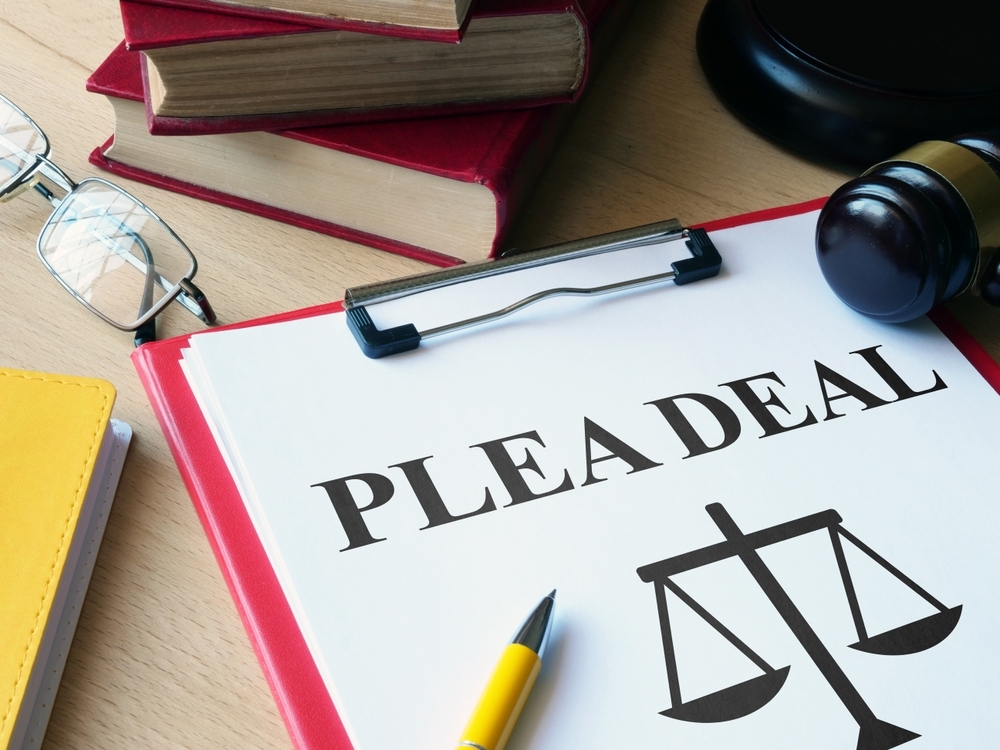
If you’re facing criminal charges in New Jersey, the pressure is intense – and when the prosecution offers a plea deal, it might seem like your only lifeline. But is it really in your best interest?
Many defendants accept plea bargains thinking they’re making the right choice, only to face unexpected legal and personal consequences later.
Before you accept any plea deal, make sure you fully understand:
- How plea deals work and why they’re offered.
- The hidden risks and long-term consequences of pleading guilty.
- Your rights and legal alternatives before making a life-changing choice.
At Attorneys Hartman, Chartered, we help clients throughout New Jersey make informed decisions, negotiate from a position of strength, and fight for the best possible outcome. Read on to understand what prosecutors don’t always tell you – and why experienced legal guidance can make all the difference.
What is a Plea Deal?
A plea bargain is an agreement between a defendant and the prosecution in which the defendant pleads guilty to a lesser charge or agrees to a reduced sentence in exchange for avoiding trial. Prosecutors use plea deals to speed up cases, reduce court congestion, and secure convictions efficiently.
Common Types of Plea Bargains in New Jersey
- Charge Bargaining: The prosecution reduces the severity of the charge (e.g., from a felony to a misdemeanor).
- Sentence Bargaining: The defendant agrees to plead guilty in exchange for a lighter sentence.
- Fact Bargaining: The defendant admits certain facts in exchange for dropping more severe allegations.
For example, a second-degree aggravated assault charge could be negotiated down to a third-degree charge, with less jail time and fewer long-term consequences. That said, not every case qualifies for a favorable plea agreement, and without legal representation, defendants may accept unfavorable terms without realizing better options might exist.
What Are the Hidden Risks of Plea Bargains?
Many people assume that plea deals are always in their best interest, but that’s not necessarily true. While they can offer reduced sentences and quicker case resolutions, they also come with significant risks. Defendants must carefully weigh these potential downsides before making a decision.
The Pressure to Settle – And Why It Can Backfire
Prosecutors often push plea deals aggressively, even when the evidence against you is weak. These offers may appear to provide relief – less jail time, fewer charges – but they’re often designed to secure fast convictions, not necessarily fair outcomes.
The pressure to accept quickly can be overwhelming, especially when the prosecution frames the offer as a “limited-time deal” or warns of harsher penalties at trial. Many defendants feel cornered and agree without realizing that better terms – or even a dismissal – might be possible.
Adding to the challenge, New Jersey’s sentencing guidelines sometimes restrict a judge’s flexibility, meaning you could still face unexpected penalties even after pleading guilty.
Because of these high-stakes pressures, it’s crucial to consult an experienced criminal defense attorney before accepting any plea. A skilled lawyer can evaluate the strength of the prosecution’s case, explore alternatives, and help ensure you’re not pressured into a deal that does more harm than good.
Can a Guilty Plea Really Affect My Future?
Even if a plea agreement reduces charges, it can still carry life-altering consequences beyond the courtroom. Many defendants focus only on immediate sentencing, without considering the lasting repercussions of a criminal record.
A guilty plea – even to a misdemeanor – can result in:
- Risk of losing a professional license, especially for nurses, teachers, attorneys, and other credentialed careers.
- Difficulty securing employment due to background checks revealing a criminal conviction.
- Ineligibility for housing assistance, student loans, or financial aid.
- Reputation damage, which can affect both career prospects and personal relationships.
These consequences can limit your opportunities long after your sentence is served. This is why it’s critical to understand the full scope of a plea deal’s impact before making a decision.
Limited Opportunity for Appeal
One of the most overlooked consequences of accepting a plea bargain is the limited ability to appeal. Unlike a trial conviction, which offers various legal avenues for appeal, plea agreements often come with a waiver of appellate rights.
Many defendants only realize the impact of this waiver after the fact – when it’s too late to challenge the conviction. Don’t give up your rights without understanding what you're trading in return.
Before accepting a plea, consult a criminal defense attorney who can assess whether the agreement truly protects your future – or if stronger legal options are available.
How Does New Jersey Law Shape Plea Bargains?
New Jersey has specific legal factors that influence plea negotiations, including:
Judicial Oversight
Judges in New Jersey have the authority to reject plea deals if they believe it’s unfair or unjust. This means that even if both sides agree to a plea, the court has the final say.
Mandatory Sentencing Laws
Certain crimes, including violent offenses or repeat DUI charges, carry mandatory minimum sentences that restrict flexibility in plea negotiations.
Pretrial Intervention (PTI) Programs
First-time offenders charged with eligible crimes may qualify for PTI – a diversionary program that avoids a criminal conviction if completed successfully. Not all charges qualify, but it’s often a better alternative than pleading guilty.
Recent Legal Changes and Prosecutorial Discretion
Some county prosecutors are more open to leniency than others, depending on local policies and political pressure. Courts now also require stronger proof that defendants fully understand their plea agreement before it's accepted, providing additional protection for those facing charges.
Who Benefits from a Plea Deal – And Who Doesn’t?
A plea bargain can be advantageous or detrimental, depending on the details of the case and negotiation process.
When a Plea Deal Might Be a Good Option
- First-time offenders: Prosecutors may be more inclined to offer probation or reduced charges.
- Strong evidence against the defendant: Negotiating a plea deal may help avoid harsher penalties at trial.
- Avoiding public scrutiny: Some defendants prefer a plea agreement to keep their case from public exposure.
When Fighting Charges Might Be the Better Choice
- Weak evidence or procedural errors: A trial may lead to a dismissal or acquittal.
- Significant long-term consequences: A plea deal may carry penalties that impact employment, housing, or professional licensing.
- Better negotiation opportunities: A strategic criminal defense attorney can often challenge the prosecution’s case and negotiate more favorable terms.
Take Control of Your Future – Contact Attorneys Hartman, Chartered Today
Plea deals are not one-size-fits-all, and the wrong agreement can have lasting consequences. Before you make a decision that could change your life, speak with a New Jersey criminal defense attorney who will fight for your best interests.
Your future deserves more than a rushed decision. Don’t gamble with your future. Call Attorneys Hartman, Chartered at 856-393-6073 or request your free, confidential consultation by filling out our online contact form today. We’re available 24/7 to protect your rights and help you make the right decision.
Disclaimer: This article is for informational purposes only and does not constitute legal advice. If you are facing criminal charges in New Jersey, consult a qualified attorney to discuss your legal options. Contacting Attorneys Hartman, Chartered does not create an attorney-client relationship unless agreed upon in writing.
